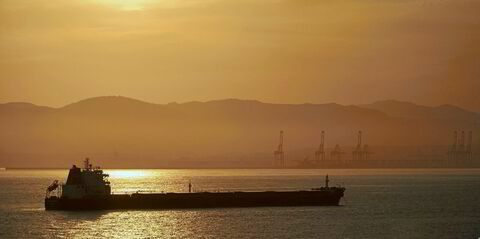Members of the Clean Shipping Alliance 2020, a newly formed and growing global association consisting of 25 major maritime companies with over 2,000 ships from across the commercial shipping, ferry and cruise industries, are concerned and disappointed by the 1 November Tradewinds opinion column, “Era of using scrubbers will go down on wrong side of history”. We believe this article is misleading and risks seriously misinforming your readers.
As shipowners and operators with significant experience (some over 10 years) in the use of exhaust gas cleaning systems (EGCS), or scrubbers, we have taken the time to do the research to understand the air and water emissions related to these systems.
We were therefore surprised at the readiness of Tradewinds to publish and endorse strong statements from sources lacking any experience or knowledge of these systems whatsoever.
We also must question why such concerns are only surfacing from others in the shipping industry now?
As we respect Tradewinds’ interest in presenting a balanced and well-researched view, we offer a few evidence-based points for consideration:
First, there are in fact independent and peer reviewed studies on the effectiveness of scrubbers in reducing emissions to air and sea.
For example, a 2012 Danish Environmental Protection Agency report [entitled "Assessment of possible impacts of scrubber water discharges on the marine environment"] showed that the composition of wash water discharged by scrubbers is well within current environmentally acceptable limits and considerably below levels that would merit concern.
All conventional marine fuels, whether MGO, HFO or new 0.5% sulphur blends, will produce sulphur oxides (primarily SO2) and particulate matter (PM) in exhaust when combusted.
One of the most environmentally significant contributions of scrubbers is that they reduce sulphur oxide and particulate matter (including black carbon) emissions to the atmosphere to extremely low levels, avoiding distribution over land and the potential for acid rain and negative impacts on human and animal health.
The benefits to air quality and human health are immediate and important.
The sulphur oxides from combustion are converted to sulphates in the scrubber through a chemical reaction before being returned to the sea, the Earth’s natural reservoir for sulphur.
These sulphates add only a trace amount to the sulfates already resident in the ocean in abundance and continuously arriving from rivers, volcanic activity, seafloor vents and other natural sources.
There they join the natural sulphur cycle, supporting life forms like phytoplankton, a source of much of the planet’s oxygen. This is all well-known, settled science. Impacts to the sea are negligible.
Regarding other constituents of scrubber wash water, studies show that compounds such as carbon, ash, or metals that may be present occur in concentrations that are orders of magnitude below the levels of concern set by relevant water quality standards, including the EU’s Environmental Quality Standards (EQS) for the marine environment. I
n a study assessing scrubber environmental impact [a March 2015 BP Marine study with analysis by the Terramare Research Centre entitled "Effects of sea water scrubbing"], researchers found in summary that no negative influence of the scrubbing system on port environments was observed.
Such findings are confirmed by ongoing third party analyses of hundreds of scrubber wash water samples from the operating fleets which consistently test well within major national and international water quality standards.
Even so, many of our Members continue to explore ways to further improve scrubber wash water quality.
Exhaust Gas Cleaning Systems have been approved by the IMO as a means of complying with emissions regulations for over 10 years and are accepted by the EU, US EPA and many other authorities as an acceptable means of compliance within the existing and future ECAs, including the Global ECA which will enter force in 2020.
During this period, many responsible shipping companies and operators have made major investments to install exhaust gas cleaning systems on thousands of their ships to ensure compliance, and thousands more will be installed in the coming years.
Those making these investments believe they are contributing responsibly to global air quality and environmental progress, and they are. .
On behalf of the Members of Clean Shipping Alliance 2020, we appreciate your consideration in ensuring that the shipowners' and operators’ experience and informed perspective regarding exhaust gas cleaning systems is fairly and accurately presented for your readers.





